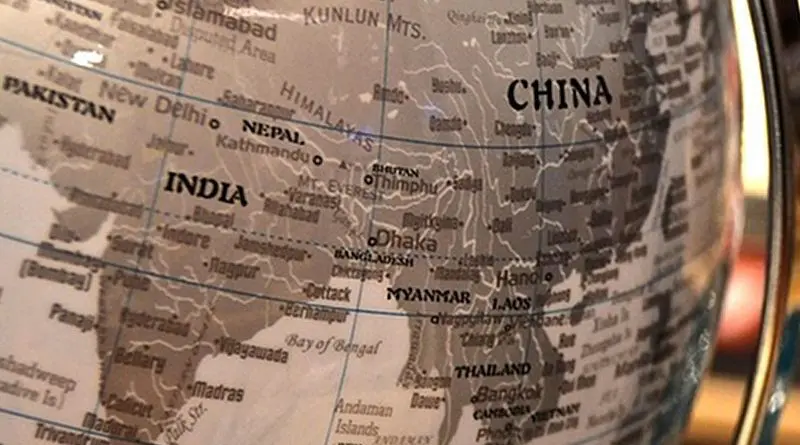Peace Moves Between India And China / Pakistan: What Went ‘Wrong’? – OpEd
The sudden peace moves between India on the one hand and China / Pakistan on the other has caused surprise to people both in India and Pakistan — and perhaps, even to people in other countries. Of course, people in China may not even know about these developments, as they receive news that is supplied only by state controlled media.
Certainly, peace loving people in India and Pakistan and even in China would have been pleased to know about the peace initiatives, as they have all along been thinking that confrontation and tension between these countries have been counter productive, forcing them, particularly Pakistan and India, to spend their scarce resources in procuring military equipment and having clashes across the border from time to time. Compared to India and Pakistan, China has a much stronger economy and spending power and it can afford to divert resources to conduct military operations, unlike India and Pakistan.
It is very well known that Pakistan, which is an Islamic country, has a number of Islamic extremists, who demand that the Islam religion alone should exist in the world. It is believed that many Islamic extremists in Pakistan have a long arm and have close links with Islamic terrorist groups in the world. Of late, even the government of Pakistan has admitted this fact, but could do nothing about this — and Pakistan itself has been a victim of Islamic terrorist attacks in the past. Unfortunately, the politics in Pakistan is mixed with religious fanaticism, and a high level of corruption amongst the politicians and military having excessive control over the government.
In such conditions, Pakistan’s economy has been shattered with a debt burden reaching alarming proportions. In such a confused scenario, China has gained a vice like grip over Pakistan over the years and many people now even suspect that Pakistan has become virtually “an extended territory of China”.
Certainly, the Pakistan government which has been highlighting the Kashmir issue and making it look like a justifiable reason for its conflicts with India, and cannot make any peace moves with India without the approval from China.
One cannot be blamed, if he would doubt whether Pakistan’s peace moves with India are genuine and will stand the test of time. It is difficult to believe that, overnight, Pakistan has shed its animosity towards India and has reconciled itself to the present situation, where part of Kashmir belongs to Indian territory.
China has a totalitarian regime with so-called communist governance. Obviously China has unconcealed ambition and greed to become the super power in the world. Today, expanding its territory and becoming a dominant player in the global trade seems to be the only objective of China. As part of its territorial expansion plan, China has forcibly occupied Tibet, a peaceful region with religious minded people, several decades back. The atrocities committed by China in Tibet are condemned around the world by many people but China does not care. China is claiming Indian territory and also has other territorial disputes with several countries such as Japan, Philippines, Vietnam and others. China says that it could occupy Taiwan forcibly any time that it would choose. With least care for the world opinion, China is suppressing freedom movement in Hong Kong and is reported to be oppressing Uyghurs living in China.
In such conditions, peace moves by China with India not only causes surprise, but suspicion about its ulterior motives.
Many political researchers are now debating what could be the reason for China/Pakistan initiating peace moves with India, even without any evidence of Pakistan shedding its claim on part of Kashmir and China still occupying a large area of Indian territory and further demanding that Arunachal Pradesh, an Indian province , belong to China.
Certainly, Pakistan in today’s conditions cannot have friendly relations with India, which would be severely opposed by Islamic extremists in Pakistan. Obviously, Pakistan could be forced by China to create an impression of its interest in initiating peace moves with India. It cannot be a mere coincidence that China, an ally of Pakistan, is now talking about having peaceful relations with India.
Launching peace initiatives with little evidence of change in policy and approach with regard to disputes with India raise more suspicion than hopes.
Perhaps, China wants to create an impression around the world that it stands for peace as its objective. Perhaps, this is a ploy by China to gain acceptance in the world about its “super power status”. If China really wants to improve its global image as a responsible country, it has to admit that it has occupied Tibet unjustifiably and should restore independence to Tibet. Similarly, if Pakistan too wants to change its image as a terrorist ridden country, it has to show proof that extremists will not have the last say in Pakistan.
As of now, the prevalence of immediate peace between India and China/Pakistan appears to be an utopian expectation and nothing more than a mirage. While the present scenario is a subject of great interest to the observers around the world, this could end up as a matter of mere sensation after some time.

